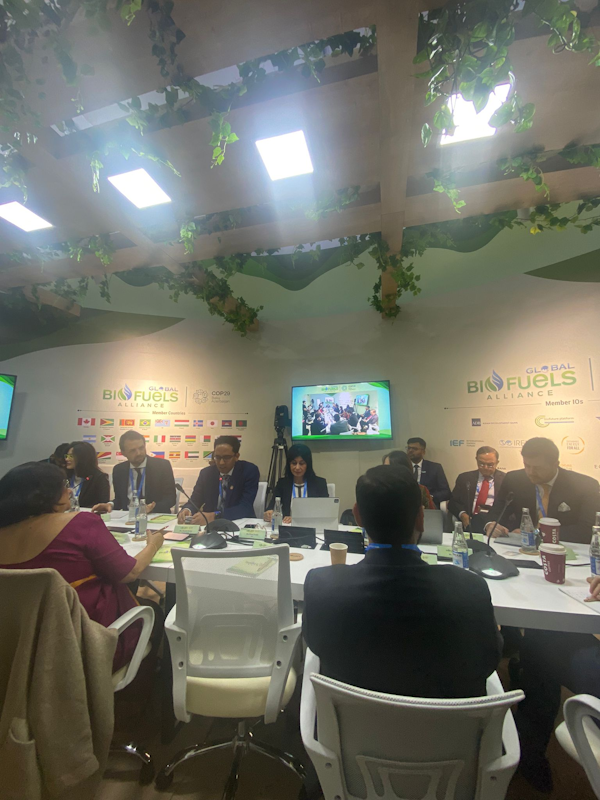A Unified Front for a Greener Future: Global Biofuels Alliance Drives Common Definitions at COP29
BAKU, AZERBAIJAN — In a crucial step toward accelerating the global energy transition, the Global Biofuels Alliance (GBA) convened a landmark roundtable at COP29, uniting policymakers and industry leaders to tackle a fundamental challenge: the lack of a common definition for sustainable biofuels. The event, held at the GBA Pavilion in Baku, underscored a growing consensus that without standardized definitions, the full potential of biofuels to combat climate change will remain untapped.
The discussion, chaired by the Indian Directorate General of GBA, featured a diverse group of participants, including representatives from major biofuel-producing nations like the USA and Brazil. Notably, Selen Inal, a distinguished Clean Energy & Green Transition Consultant and WiRE (Women in Renewable Energy) Turkiye Chapter leader, was an invited guest, highlighting the GBA's commitment to inclusive dialogue and the critical role of women in the energy sector.
Removing the Roadblock to Adoption
The most significant takeaway from the roundtable was the collective acknowledgment that the absence of a unified definition for "sustainable biofuels" is a major barrier to their widespread adoption. This isn't just a technical hurdle; it’s a fundamental roadblock that hinders global policy coordination and market harmonization. Participants stressed that for biofuels to become a mainstream component of the energy mix, there must be a clear and consistent understanding of what constitutes a sustainable product.
A key theme that emerged was the need for a flexible, not "one-size-fits-all," approach. The new definition must be broad enough to accommodate the diverse range of feedstocks (like sugarcane, corn, and agricultural waste) and various technological pathways used worldwide. This flexibility is essential for creating a robust international market that supports different regional production methods while maintaining strict sustainability standards.
GBA's Pivotal Role
The event solidified the Global Biofuels Alliance's position as the leading organization to spearhead this crucial initiative. Participants praised the alliance’s leadership, signaling a growing international trust in this relatively new entity, which was launched by Indian Prime Minister Narendra Modi at the G20 Summit in New Delhi. The GBA's mission is to unite governments, international organizations, and industries to promote the development, deployment, and trade of biofuels as a vital component of the energy transition. The consensus at COP29 is a powerful testament to the alliance’s rising influence in shaping a more sustainable energy future.
The roundtable demonstrated that effective climate action requires multi-stakeholder collaboration. The presence of policymakers, industry leaders, and NGO representatives, highlighted the necessity of a unified front to create a framework that is both effective and equitable. By elevating the discussion on biofuels directly at a major climate conference like COP29, the GBA is working to position these fuels as a credible and vital solution for decarbonizing hard-to-abate sectors, particularly transportation.
The GBA roundtable at COP29 was more than a discussion; it was a clear call to action. By focusing on the foundational issue of defining sustainability, the alliance has set a clear path forward for removing barriers, fostering international cooperation, and accelerating the adoption of biofuels as an indispensable tool in the fight against climate change.
Learn more about Global Biofuels Alliance
Written by:
Andrew Osawe,
Operations Director,
Women in Renewable Energy (WiRE)


